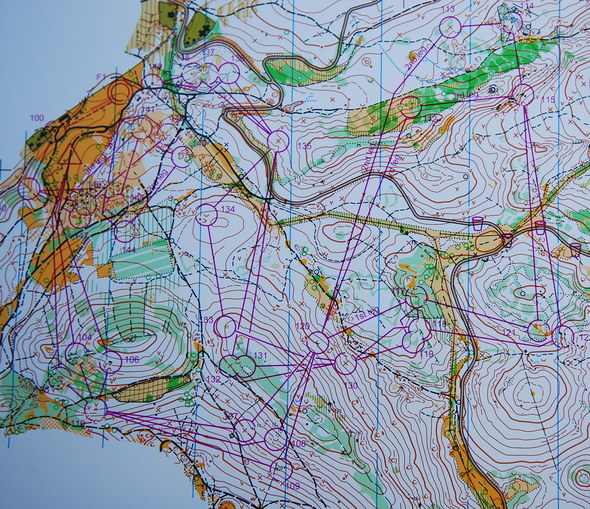
[Updated map links!] Utterly unbelievable last legs seems to be the new standard in WOC relays in the mens class. Switzerland took the Gold in the mens relay and Norway in the womens relay of the WOC 2009 relay – but this race will not be remembered for who took the gold medals – but rather for the drama involving the four leading teams in the last leg of the mens race.
After Thierry Gueorgiou’s incident with the bee swallowing at WOC 2008 in Olomouc, Czech Republic – the Frenchman again got involved in a somewhat similar episode at the end of the last leg in this years relay. This time it was not Gueorgiou himself who got injured – but rather the Swede Martin Johansson who at that point in the relay was in the lead being pursued by Gueorgiou, Anders Nordberg (France) and Michal Smola (Czech Republic).
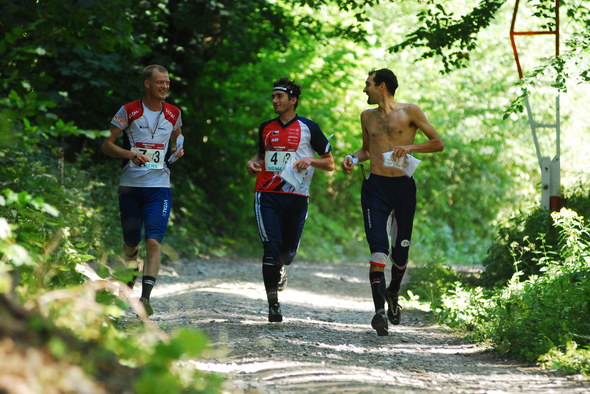
The three heroes of the day on the way to the spectator control after the incident.
10 cm into his leg
Johansson was running about 10 meters in front of Gueorgiou with Nordberg just behind when the Swede fell and was obviously in great pain. – When I hear Martin Johansson cry like a baby, I know something is wrong, Gueorgiou said after coming to the finish. It turned out Johansson had got a stick 10 cm into his leg. Gueorgiou, Nordberg – and Smola who came to the spot right after the three leading teams – stopped their races, and helped. Nordberg run for help, while Gueorgiou and Smola stayed with Johansson and helped him.
Not a real Gold medal
Meanwhile Matthias Merz – who didn’t know anything about the accident – with a clear and fast run got the victory. Thus Gold medals for Switzerland – but the medals didn’t taste as good as they normally do. France, Norway and Czech Republic finished the race after Johansson had been driven to the hospital – finishing around 30th place.
The other medals in the mens race went to Russia and Finland. You can replay all the drama in the LiveBlog at the bottom of this page – it is really worth a read!
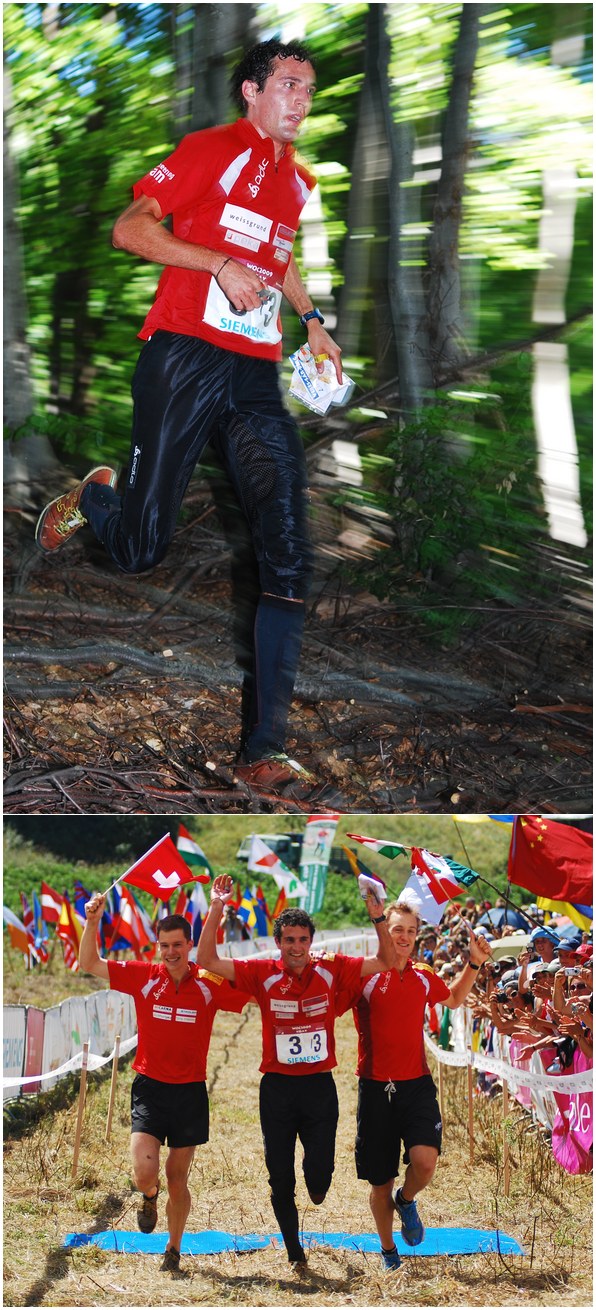
Womens relay: Different kind of drama
After the very special events in the mens relay, the womens relay was also a very dramatic race – but here orienteering was in the focus as it should be in our sport.
Minna Kauppi started first on the last leg – and most thought that this would be another relay Gold for the Finnish girls, even if Marianne Andersen (NOR), Simone Niggli (SUI), Helena Jansson (SWE) and Dana Brozkova (CZE) followed within slightly more than two minutes.
Then came control number 5 shown below. This control meant real trouble for nearly all of the women teams in the lead. All women made mistakes here – and the nearly made a new mass start from this control with four teams: Finland, Norway, Sweden and Czech Republic. Poor Simone Niggli saw the others running away from the control, but just couldn’t find the control and kept searching for more than a minute after the others left.
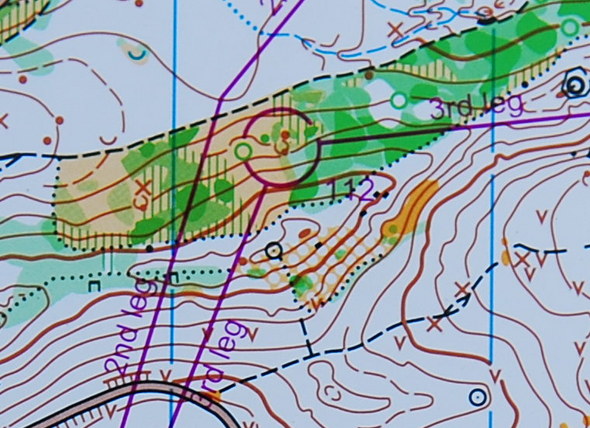
Above: Control number 5 in the womens last leg. I was out checking the control after the race, and actually searched for between 5 and 10 minutes before finding it – all the time searching within 30-40 meters radius. In the end I gave up, and stumbled over the control just when I was leaving as I was sure the organizers had removed the control. Well hidden in the green – but approximately in the right place according to the map. The area was full of paths going back and forth – lots of runners had obviously been searching here…
After several mistakes from the runners – and also different routechoices by the top teams – in the remainder of the course (see GPS tracking, pay service), Marianne Andersen finally secured the victory for Norway. After six silver medals, Marianne Andersen finally got a Gold medal!
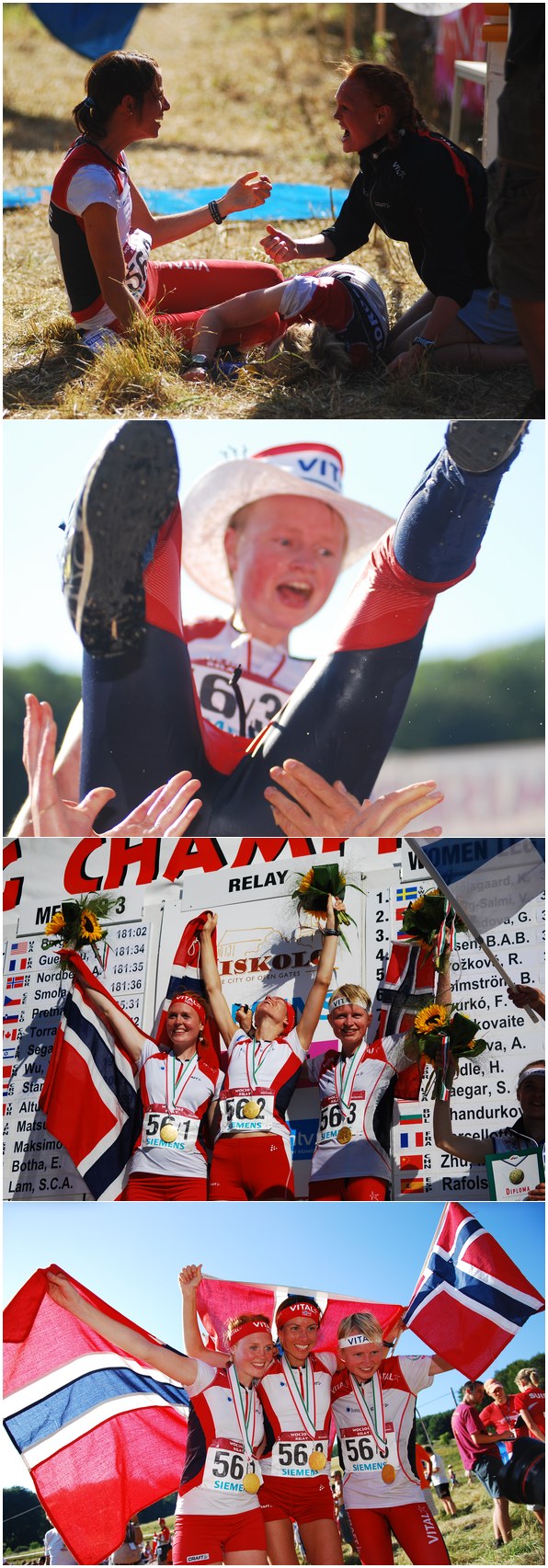
Maps
Results men
1. Switzerland 2:22:48
1.1 Baptiste Rollier 36:37
1.2 Daniel Hubmann 54:18
1.3 Matthias Merz 51.53
2. Russia 2:25:12
2.1 Dmitry Tsvetkov 34:54
2.2 Valentin Novikov 52:24
2.3 Andrey Khramov 57:54
3. Finland 2:25:14
3.1 Topi Anjala 36:03
3.2 Tero Fohr 54:52
3.3 Mats Haldin 54:19
4.Latvia 2:25:18
5.Hungary 2:29:16
6.Poland 2:30:20
Results women
1. Norway 2:13:10
1.1 Nilsen Betty Ann Bjerkrei 32:57
2.1 Hausken Anne Margrethe 50:19
3.1 Andersen Marianne 49:54
2. Sweden SWE 2:13:28
2.1 A.Höjsgaard Karolina 32:28
2.2 Nilsson Kajsa 50:01
2.3 Jansson Helena 50:59
3. Finland FIN 2:15:25
3.1 Holmström Bodil 33:33
3.2 Rantanen Merja 47:51
3.3 Kauppi Minna 54:01
4. Switzerland SUI 2:16:12
5. Czech Republic CZE 2:16:26
6. Russia RUS 2:20:10
Replay of the WOC 2009 action
Follow the WOC 2009 action through the World of O LiveBlog below. There is also a mobile version of the LiveBlog here.
 World of O News
World of O News
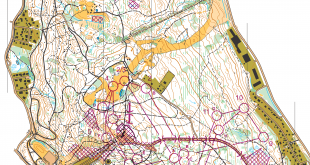
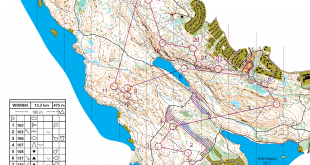
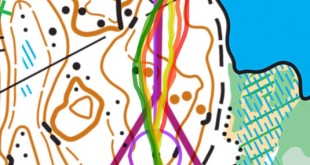
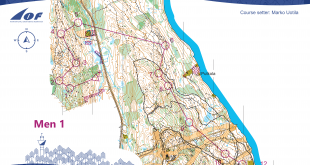
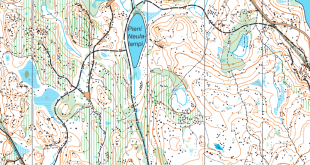
The maps is not accessible!
Q: According to the relay map, control 5 of women’s last leg is located in a “light-olive” area. The symbol appears to be a combination of the 30% green and 50% yellow screens, which ISOM 2000 does not permit. So how does it look like there?
link to maps doesn’t work
Links to maps are fixed now. Really sorry about it – but Internet is on and off here, so it is difficult to do all the double checking I should do.
Men’s link still point out to women’s map…
Is it so difficult to move mouse over the link?
@romanb: Thanks for the info. And yes – when you have to do it from your mobile phone or in very limited time before the connection is down again, it is not so easy. Again: Sorry, but I try my best here under not exactly ideal working conditions.
@DIRK: The course planner probably tried his best and updated the mapping of vegetation last minute, extending the light green. Then he forgot to delete the overlapping yellow area, making the control appear to be in an area more yellow and less green than it actually was. The event advisors did not check the map update anymore. This cost many runners a lot of time, with the Swiss women being the least luckiest and loosing a medal.
One cannot read or hear about this map problem in any of the statements of the Swiss runners in various media, indicating great sportsmanship and fairplay as well
@Christian: It’s not a question of deleting yellow, it’s about the color settings for offset printing. With light and middle greens there should be a 0% setting for yellow, which will automatically take the yellow off. The tone of the greens in the middle of light yellow area left of the control is different from those on white background right of the control.
The same overprint appears on light brown road where adjacent green and yellow areas are visible.
Worst is though the awfully short cliffs. In 1:10000 maps minimum lenght for cliffs is 0,9 mm. Here they are hardly 0,5 mm.
Then of course, we don’t know if the competitor maps were like this spectator map.
There will be different views on whether the result of the men’s relay should stand, but I find it disappointing the Norges Orienteringsforbund (NOF) have already publicly expressed their view the relay result should be annulled (see NOF website).
Such views by important governing bodies should, initially at least, be expressed privately and not for all to see. But since they so quickly voice their strong opinion in public, let us discuss their stance.
NOF point to IOF rule 26.13 as justification to cancel the result. That rule states:
“The organiser must void a competition if at any point it becomes clear that circumstances have arisen which make the competition unfair or dangerous for the competitors.”
Their argument, it seems, is because the race for the medals was spoiled, the competition should be cancelled – it is “unfair”. The counter-argument to their view is simple.
There are 13 sub-sections to the fair play rule in IOF rules. They need to be all read together, not one point taken in isolation. In particular, Rule 26.3 states “It is the duty of all competitors to help injured runners.” Because Nordberg, Smola and Gueorgiou followed this rule, the competition cannot be classed as unfair.
Sport is full of examples where winners on the day are lucky, and others can point to misfortune. We seem to have quickly forgotten what happened 12 months ago. If a competition is held solely to find the winner, then perhaps last year’s men’s relay result should also have been cancelled. Whether you are stung by a bee or fall on a stick, if some accident happens to the leader of the race, then yes, let us cancel the competition! What next, if the race leader twists their ankle in the finish chute and gets overtaken, the race suddenly becomes “unfair”?
So the winner on the day was not the best in the field. It happens in sport many times (e.g. the Australian speed skater at the Winter Olympics). It is unfortunate, but is the nature of sport, and not “unfair”. The organiser should be congratulated for allowing the results to stand no doubt in the face of pressure from some nations. They have done the right thing.
I can’t agree with all of Rob’s assessment, although I do understand his point about public versus private statement’s. Having said that, I wasn’t privvy to the no doubt intense private discussions that went on during the day where I’ve no doubt the NOF expressed their views in private.
An injury to one or more competitors should not cause a race to be voided unless it is palpably unfair and could have reasonably been avoided by the organisers.
The case where runners who are not injured become affected by an injury to another is different. It is the organiser’s responsibility to provide a fair race and in that sense they have the responsibility to deal with the injured runner – not the other competitors. Clearly in orienteering that is impossible – you can’t have marshalls across the whole forest – so we have accept that sometimes sport isn’t the most important thing in life – Rob appears to accept that but his inclination is to let the result stand – mine would be to publish the results but not declare a World Champion.
I’ve not read the rules but if the intent is to say that you must help an injured runner in all circumstances then I would say our rules aren’t really sound for holding championships at national or international level.
Rob’s assertion that if a competitor follows one rule then another rule doesn’t apply is not logical.
The other point about rules is that they are for guidance and interpretation. It is impossible to legislate for every eventually in rules and rather pointless to try. Life’s too short.
For example the World Championships is there to find the World Champion, not to rank everyone in order, although that’s nice also. Hence I personally would handle the situation differently when the top teams are affected compared with when teams lower down the order are affected. You can’t legislate that fairly – you have to take a common-sense judgement on the day. Of course I’d do whatever I could to help those teams get a result they can take back to their funding bodies, but it may not be possible to keep everyone happy.
From what we know so far, and taking the meaning of ‘unfair’ to be “was the competition fair or unfair”, here’s a handy table to cut out and carry around:
Twisting an ankle – Not unfair.
Swallowing a bee – Bizarre, unlucky, unjust perhaps, but not unfair.
Stopping your potentially medal winning run to help another competitor – unfair.
I can think of lots of other examples – the degree to whether they represent an unfair competition really has to be based on whether the competitor was at fault and whether the responsibility for causing or handling the incident could be deemed to lie with the organisers or soley with the competitor. So if the leading runner is bitten by a dog it’s probably just unlucky but if they get taken out by a mountain bike as there is a mountain bike race on at the same time then I’d say that is an unfair race – provided it wasn’t obviously the competitor’s fault e.g. the fastest route was coincident with the mountain bike route. If the competitor was actually lost but not out of bounds when the bike hit them then that’s an even greyer shade of grey.
Somehow I reckon it won’t be long before Switzerland win it for real and I hope it won’t be long before France do. Probably be a (little) bit longer before GB win again – our bee keeper has retired.
Thierry’s deserved relay gold was already taken away at the unfair control 5.
It will be difficult for France to win any WOC relay medal in the future. Thierry is the only French who can handle the 2010, 2011, and 2013 terrains. Maybe a bronze medal in 2012
Would whoever owns copyrights to the great photos on this page please license them on Wikimedia Commons, so they can be used in Wikipedia articles? Especially the photo of Team Fairplay? And if possible do so RIGHT NOW? Editors on English Wikipedia are preparing to feature this incident on the Main page, likely tomorrow (anniversary of September 11 attack on the World Trade Center, a day to remember heroes).